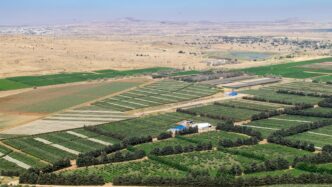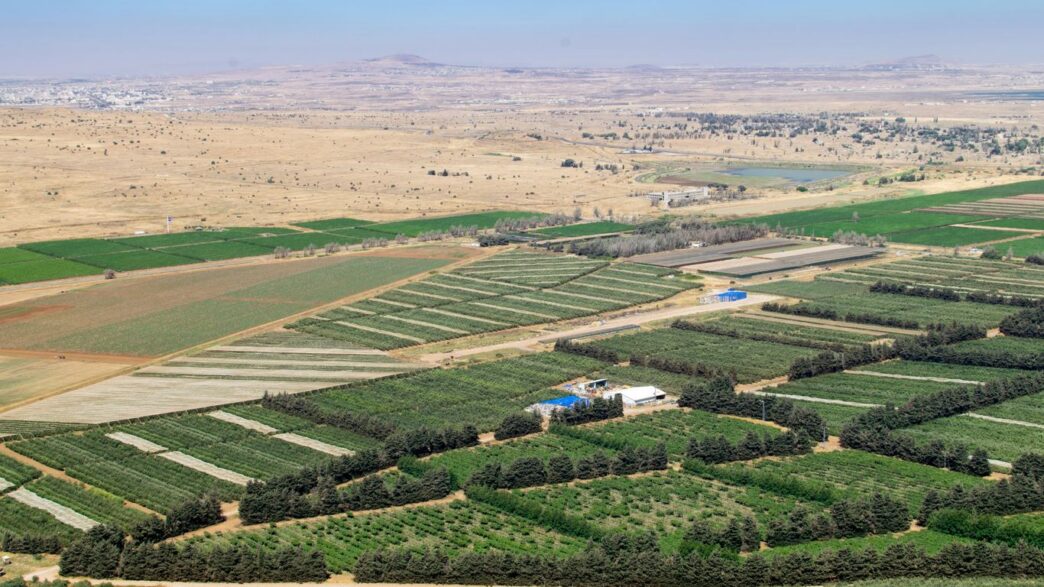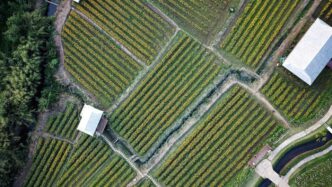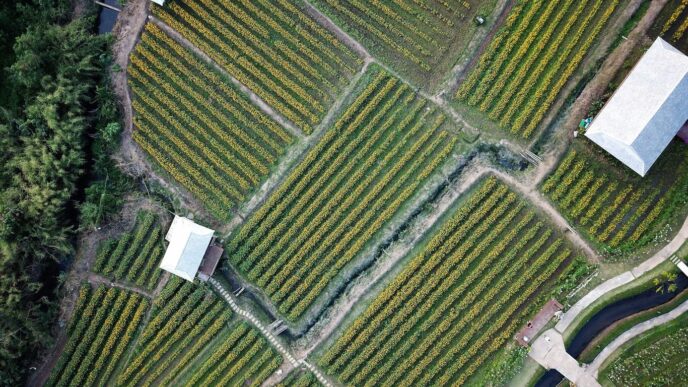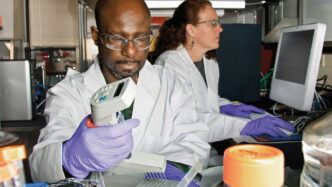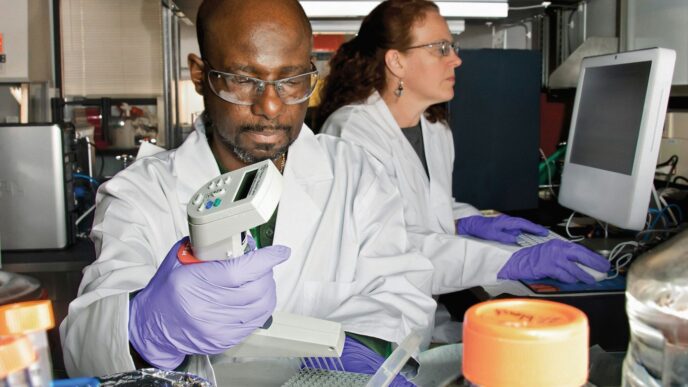It’s pretty amazing what Israel has done with farming. You know, they have a lot of dry land, not much water, and yet they’ve become a major player in agriculture. It really shows what people can do when they have to figure things out. They’ve taken old ideas and mixed them with new technology to grow food in ways most people wouldn’t think possible. This whole journey from a tough environment to a farming success story is quite something.
Key Takeaways
- Israel turned its dry, desert-like land into a productive farming area through smart techniques.
- New ways of watering crops, like drip irrigation, save a lot of water and help plants grow better.
- Using recycled water and making fresh water from the sea helps keep farms going, even with little rain.
- High-tech tools such as AI and drones help farmers manage their fields more precisely, reducing waste.
- Israel shares its farming knowledge with other countries to help them grow more food too.
From Arid Land to Agricultural Hub: The Israeli Journey
It’s pretty amazing when you think about it – how a country, much of which is desert, became a global leader in farming. Israel’s story is a real testament to what happens when necessity really does become the mother of invention. For a long time, about two-thirds of the land here was considered arid or semi-arid, with soil that wasn’t exactly top-notch. Add to that scarce water resources and scorching summers with almost no rain, and you’ve got a recipe for a serious challenge.
Biblical Roots of Israeli Agriculture
Farming isn’t exactly new to this region. The connection to the land goes way back, even to biblical times. Back then, growing crops and raising animals were just part of daily life. The Jewish calendar itself is tied to the seasons and harvests, with festivals marking different agricultural periods. Early farmers here knew how to work with the land, using irrigation from mountain streams and enriching the soil with manure. Even in ancient times, there were rules about sharing the harvest, like leaving some crops for the poor and allowing passersby to eat from fields and vineyards but not take much away. It shows a long history of relying on and respecting the land.
Necessity as the Mother of Innovation
Given the tough environmental conditions, Israelis have always had to be clever about how they grow food. Being far from other major food markets also meant they had to be self-sufficient. This constant need to overcome limitations pushed them to develop new methods and technologies. From the early days of trying to cultivate difficult terrain to the high-tech solutions we see today, this drive to innovate has been constant. It’s this very pressure that has helped Israel not only feed its own people but also become a major player in global agriculture and water management.
Transforming the Negev Desert
Perhaps the most striking example of this transformation is the Negev Desert. Once seen as just a vast, empty space, it’s now home to productive farms. This wasn’t easy, of course. It involved a lot of hard work clearing land, dealing with sandy soil, and figuring out how to get water to where it was needed. Early pioneers, often with little farming experience but a lot of determination, worked to build terraces, drain swamps, and even plant forests. They faced diseases and difficult conditions, but their commitment to making the land productive was incredible. It really shows how human ingenuity can turn even the most challenging environments into something fruitful, much like turning a desert into an oasis. This kind of progress is a big part of why Israel is now seen as a model for desert agriculture.
Pioneering Water Management in Agriculture
When you live in a place that doesn’t get a lot of rain, you learn to be smart about water. That’s exactly what happened in Israel. Facing dry conditions, especially in places like the Negev desert, meant that every single drop of water had to count. This necessity really pushed people to invent new ways to manage water for farming.
Drip Irrigation Revolutionizes Water Efficiency
One of the biggest game-changers was drip irrigation. Instead of flooding fields, this method delivers water right to the base of each plant, directly to the roots. It’s pretty clever because it cuts down a lot on water that just evaporates or runs off. This means plants get exactly what they need, and farmers save a ton of water. It’s not just about saving water, though; it actually helps crops grow better and produce more. This system has been adopted all over the world, especially in dry areas, showing how a tough situation can lead to really smart solutions. It’s like giving each plant its own personal water dispenser.
Wastewater Recycling for Irrigation
Israel also figured out how to make use of water that most places would just throw away. They’ve become world leaders in treating wastewater and then using it for irrigation. Seriously, over 85% of the water used for farming in Israel comes from recycled sources. It’s a fantastic way to create a sustainable water cycle, turning something that was considered waste into a valuable resource for growing food. This approach not only supports agriculture but also shows a real commitment to the environment. It’s like giving water a second chance to be useful.
Desalination: Creating Freshwater Abundance
And then there’s desalination. With the Mediterranean Sea right there, Israel started building plants to turn saltwater into freshwater. This has been a huge help in providing enough water for farming, especially in areas that were once too dry to grow much of anything. These plants are pretty amazing feats of engineering. For farmers, it’s like finding a new, reliable water source that doesn’t depend on rainfall. This technology has really helped turn dry land into productive farmland, making the most of what nature provided. It’s a big part of how they’ve managed to grow so much food in a challenging climate, and it’s a technology that’s becoming more important globally as water resources become strained. You can find out more about how technology is shaping our future at future technology trends.
Technological Advancements in Israeli Farming

It’s pretty amazing what Israeli farmers have managed to do, especially considering the tough conditions they often face. They’ve really leaned into technology to make things work, and honestly, it’s paid off big time.
Precision Agriculture with AI and Drones
This is where things get really high-tech. Israeli farmers are using artificial intelligence, drones, and even satellite images to keep a close eye on their crops. Think of it like having a super-smart assistant for every plant. These tools help them figure out exactly how much fertilizer to use and even predict how weather might affect the harvest. This level of detail means less waste and better yields. It’s a smart way to farm, making sure every bit of effort counts. It’s a bit like how technology is changing education, making things more efficient and accessible.
Vertical Farming Maximizes Land Use
Land is a big deal here, so finding ways to use it wisely is key. Vertical farming is a clever solution. It’s basically growing crops in stacked layers, often indoors. This means you can grow a lot more food in a smaller footprint, even in places like cities or deserts. It’s a creative approach to farming that really makes the most of the space available.
Solar-Powered Greenhouses
Israel gets a lot of sun, and they’re using it to their advantage. Many farms are now powered by solar energy. This clean energy runs irrigation systems, cooling fans, and lights in greenhouses. It’s a great way to cut down on energy costs and reduce the environmental impact of farming. It’s like the sun is directly helping to grow the food.
Biopesticides and Natural Pollination
Instead of relying on harsh chemicals, Israeli farmers are turning to nature. They’re using things like natural predators to control pests and bumblebees for pollination. This approach helps keep crops healthy while also being kinder to the environment. It’s a more balanced way to farm, working with nature rather than against it.
Sustainable Practices for a Greener Future

Drought-Resistant Crops Enhance Food Security
When you live in a place that doesn’t get much rain, you learn to make do. Israeli scientists have been working hard on this, developing new kinds of crops that can handle heat and don’t need a lot of water. They do this through careful breeding and sometimes by tweaking the plants’ genes a bit. Think of it like giving plants a special suit of armor to protect them from tough weather. This means they can grow food even when it’s dry, which is a big deal for making sure everyone has enough to eat, not just in Israel, but in other places facing similar dry spells too.
Biopesticides and Natural Pollination
Nobody wants to eat food sprayed with harsh chemicals, right? Israel is trying to move away from those. Instead of strong chemical pesticides, they’re using things like natural predators that eat the pests or introducing helpful insects like bumblebees to pollinate the plants. It’s like letting nature do the pest control and pollination work itself. This keeps the crops healthy and the environment cleaner, and it means the food we get is safer.
Smart Irrigation Sensors Optimize Water Usage
Water is super important, especially when it’s scarce. Israeli farmers are using smart sensors in the ground that tell them exactly how much water the soil has and when the plants actually need a drink. It’s like having a tiny weather station for each plant. This way, they don’t waste a single drop, only watering when and where it’s needed. This smart approach helps save water, which is a big win for farming in dry areas and for the planet.
The Rise of AgTech and Innovation
It’s pretty wild how Israel went from a place with tough farming conditions to a global leader in agricultural technology, or AgTech. A lot of this has to do with the country’s knack for innovation, especially when facing challenges like water scarcity. This drive to find new solutions has really put Israel on the map for AgTech startups.
Government Initiatives Fueling Growth
The Israeli government has played a big part in this. They’ve made smart choices about where to invest, putting money into promising areas of agriculture and stepping back from ones that weren’t working out. For instance, they shifted focus from things like floriculture, where cheap labor elsewhere made it tough, to more profitable crops like vegetables and fruits. This kind of strategic thinking, along with direct funding for research and development, has really helped the sector grow. It’s like they’ve been building a strong foundation for years, and now it’s really paying off.
Entrepreneurial Spirit in AgTech Startups
Beyond government support, Israel is just full of people who love to start businesses. This entrepreneurial spirit is super evident in the AgTech scene. You see new companies popping up all the time, tackling everything from how we grow food to how we package it. Some are even looking at things like insect protein or lab-grown meat as more sustainable options. It’s a really dynamic field, with lots of bright ideas trying to solve big problems. For example, companies are developing AI tools to help farmers manage their fields better, almost like giving them a super-smart assistant. You can see some of these innovative companies at events like Agritech Israel.
Agritech Israel: A Global Forum
Speaking of Agritech Israel, this event is a really big deal. It happens every few years and brings together thousands of people from all over the world – farmers, researchers, investors, and government folks. They all come to talk about the latest in agricultural technology, especially how to deal with things like climate change and water shortages. It’s a place where new ideas are shared, partnerships are formed, and the future of farming is really shaped. It shows how Israel isn’t just innovating for itself, but also sharing its knowledge to help food security globally.
Sharing Knowledge for Global Food Security
Israel’s journey from a land with limited resources to an agricultural powerhouse isn’t just a story about clever farming; it’s also about sharing what they’ve learned. It’s pretty amazing how a country facing its own tough conditions decided to help others do the same. They really believe that by sharing their agricultural know-how, they can make a difference worldwide.
Israel’s Role in International Agriculture
It’s not just about inventing new ways to grow food; it’s about making sure those inventions get out there. Israel has been actively involved in projects across the globe, helping countries improve their farming techniques. Think about it: sharing expertise on things like water management or developing crops that can handle tough climates can really change lives. They’ve worked with nations in Africa and Asia, bringing their advanced methods to regions that need them most. This collaborative spirit is a big part of why they’re seen as a leader in helping other countries achieve food security.
Promoting Sustainable Farming Worldwide
When you look at what Israel has done, a lot of it comes down to sustainability. They’ve figured out how to grow more with less, especially when it comes to water. Practices like drip irrigation and using recycled water are now being taught and adopted elsewhere. It’s like passing on a secret recipe for making the most out of what you have. They also focus on creating crops that don’t need a lot of water or can survive in salty soil, which is a huge deal for areas dealing with drought or poor land quality. This focus on resilience helps build more stable food systems globally.
Addressing Climate Change Through AgTech
Climate change is a massive challenge, and agriculture is right in the middle of it. Israel’s approach to AgTech, or agricultural technology, is a direct response to this. They’re using things like AI and drones for precision farming, which means less waste of water and fertilizer. They’re also big on vertical farming, which uses way less land and water. These aren’t just fancy gadgets; they’re practical solutions for a world where resources are getting tighter and the weather is getting more unpredictable. By developing and sharing these technologies, Israel is contributing to a more resilient global food supply, showing that innovation can be a powerful tool against climate challenges. You can see how this kind of forward-thinking is important for the future of farming everywhere, much like how other countries are advancing in technology across the globe.
Here’s a quick look at some key areas where Israel shares its agricultural advancements:
- Water Management: Sharing techniques for drip irrigation, water recycling, and desalination.
- Crop Development: Advancing drought-resistant and salt-tolerant crop varieties.
- Technology Adoption: Promoting precision agriculture, vertical farming, and smart irrigation systems.
- Knowledge Transfer: Conducting training programs and collaborative research with international partners.
A Legacy of Innovation
Looking back, it’s clear that Israel’s journey from a land of scarcity to one of agricultural plenty is a story of human grit and smart thinking. Faced with a tough environment, they didn’t just survive; they found ways to thrive, turning dry earth into productive fields. This drive to innovate, from ancient farming methods to today’s high-tech solutions like drip irrigation and recycled water, has not only fed their own people but also offered valuable lessons to the rest of the world. Israel’s approach shows us that with determination and a willingness to share knowledge, even the most challenging conditions can lead to remarkable success in feeding our planet.
Frequently Asked Questions
How did Israel turn its desert into farmland?
Israel used smart techniques like drip irrigation, which sends water right to plant roots, and recycled wastewater for crops. They also developed plants that can grow with less water and in tough conditions. This helped make dry land green and productive.
What is drip irrigation and why is it important?
Drip irrigation is a method that delivers water slowly and directly to the base of plants. It’s super important because it saves a lot of water by reducing evaporation and making sure plants get exactly what they need, which is great for dry places.
How does Israel use technology in farming?
Israeli farmers use cool tech like drones and AI to watch over their crops. This helps them know exactly when and where to water or fertilize, making sure plants grow their best and reducing waste.
What is vertical farming?
Vertical farming is like growing plants in layers, one above the other, often indoors. This way, farmers can grow a lot of food in a small space, which is perfect for cities or areas with limited land.
How does Israel help other countries with farming?
Israel shares its farming knowledge and technology with nations around the world. They teach others how to grow more food, especially in dry areas, helping to solve global hunger problems.
What are drought-resistant crops?
These are special types of plants that have been developed to survive and grow well even when there isn’t much water and the weather is very hot. They help make sure there’s enough food even when conditions are tough.

